Chapter Links (Timestamps)
- Intro (0:00)
- AA Cuenca with Alex & Chuck (01:47)
- English AA in other cities? (3:00)
- Tips for first timers (04:27)
- Chuck’s journey to AA (07:26)
- How AA helps form community (09:43)
- Getting to AA Cuenca (12:15)
- Other groups using the space (NA, OA etc) (12:57)
- On the fence? (14:16)
- Death Talk Cuenca with Michelle Puga (17:06)
- English & Spanish meetups (18:39)
- What are Death Cafes? (19:14)
- What to expect?(21:06)
- Tips for fencesitters (22:31)
- What else is Death Talk Cuenca doing? (24:41)
- Life Urns (26:29)
- Contact Michelle (28:13)
Nestled in the Andes, Cuenca is a city of timeless charm and natural beauty, attracting expats from all corners of the globe. In this video and article, we’ll take you on an enlightening expedition into an essential facet of expat life – the myriad support groups that provide a sense of community and a helping hand precisely when you need it most. Whether you’re a retiree ready to savor the sweet fruits of life or a newcomer with dreams of making Cuenca your new home, these support groups can offer a lifeline to expats of all walks of life.
The Crucial Role of Cuenca Support Groups
Support groups are the unsung heroes of the expat experience in Cuenca. They serve as pillars of strength, offering newcomers a sense of belonging and a safety net to navigate the unfamiliar terrain of life in a foreign land. For retirees and those who’ve chosen Cuenca as their new home, these groups play an indispensable role in their daily lives.
One of the defining characteristics of expat life is that it’s not always a smooth journey. There are moments when you might need a helping hand, a shoulder to lean on, or a friendly face to talk to. Support groups in Cuenca can become that lifeline in times of need. They’re the friends who understand the unique challenges of living in Cuenca and provide comfort when you need it most. In this article, we will explore some of the vital support groups in Cuenca that are enriching the lives of retirees and newcomers alike.
Alcoholics Anonymous (AA) in Cuenca
For those embarking on the challenging journey to recovery, Cuenca’s English-speaking AA meetings offer much-needed support. These daily noon gatherings, as Alex notes, are a reassuring beacon for those seeking a way to overcome addiction and find a fresh start. Alex, a member of the AA community in Cuenca, recounts his initial experience with these meetings, stating, “I moved here six years ago, and it’s part of my scouting out of Cuenca before the move. I wanted to make sure there was English-speaking AA.” His story exemplifies how crucial these meetings are for people like him who, upon arriving in a new country, seek a supportive community to aid in their recovery.
Chuck, another member of the AA community, shares his journey of addiction and recovery. He acknowledges the importance of making significant life changes, saying, “Thinking things about the future, and that sort of thing brought me to Alcoholics Anonymous. Wanting to have a better life.” Chuck’s story reflects the transformative impact AA has had on his life and his pursuit of a healthier, alcohol-free lifestyle.
What sets these AA meetings apart, as both Alex and Chuck emphasize, is the strong sense of community they provide. Alex remarks, “If you’re lucky enough to be in the program, you find that when you enter a meeting, you’re automatically with friends.” This instant connection and support system extend beyond the scope of addiction recovery. Chuck adds, “Now I’m pretty bilingual now, but at that time it was good to find other English-speaking people – not just at a bar because that’s definitely where I would have tended to end up.” The inclusive nature of AA in Cuenca extends to helping newcomers navigate daily life in a new country, whether it’s finding a support network, shopping, or even searching for a place to live. These AA meetings offer much more than sobriety; they provide support and a sense of belonging for expats in need.
Women’s AA Meetings
The women’s Alcoholics Anonymous (AA) group meets on Wednesday mornings at 10:30 and provides a safe and welcoming space for women dealing with abuse issues. Chuck, one of our interviewees, emphasizes the importance of such meetings, highlighting that they go beyond just abstaining from substance use. He discusses the value of finding a different path in life that doesn’t lead to addiction and how the support from these groups helps individuals make that transition. The women’s AA group caters to women’s specific needs, creating a sense of community and understanding that extends far beyond their regular meetings.
For those considering joining the women’s AA group or any other support meetings, the process is quite straightforward, as Alex mentions. You can simply walk in, have a seat, and listen. There are no prerequisites, and you’re not required to go through an orientation. These meetings are open to anyone, whether they are seeking help for their own addiction or supporting a loved one’s recovery journey. It’s a stress-free way to explore whether these support networks can make a positive difference in your life and help you find the support and understanding you need on your path to recovery.
Narcotics Anonymous (NA), Overeaters Anonymous (OA), Al-Anon
In Cuenca, NA and OA, often represented merely as acronyms, carry a profound meaning for those who seek support and recovery. Just as AA provides a supportive community for alcoholics, NA and OA extend a compassionate hand to those facing different challenges, demonstrating that struggling expats are never alone.
Much like the camaraderie found in AA, NA and OA offer a similar sense of community and understanding. Alex and Chuck’s experiences in AA mirror the essence of these support groups. They come together to share their experiences, offer guidance, and foster a profound sense of belonging in a foreign land. For those dealing with narcotics or overeating issues, these meetings can be transformative. Whether you are new to Cuenca or have silently suffered, these gatherings are open to all, providing a world of difference in the expat journey.
Chuck underlines the significance of addressing the underlying issues that lead to addiction, saying, “What about life that made me want to drink can I leave behind? What can I do to make a different life that doesn’t make me want to have to drink every day?” This highlights the multifaceted approach to recovery taken by NA and OA, which delves beyond the surface and aims to support expats in creating healthier and more fulfilling lives. The warmth, understanding, and unwavering support present in these meetings serve as a reminder that, even in the face of addiction and overeating, the expat community in Cuenca stands together, ensuring that nobody walks this path alone.
Al-Anon is a vital support group for families dealing with the challenges of alcoholism. Founded by the wife of AA’s founder, Al-Anon offers solace and guidance to the loved ones of those struggling with alcohol addiction. These meetings are crucial in helping families cope with the impact of addiction on their lives. Chuck highlights the importance of Al-Anon, emphasizing that it’s about more than just not drinking; it’s about understanding the root causes of addiction and finding ways to change one’s life to avoid relapse.
The Al-Anon meetings in Cuenca occur on Mondays and Thursdays, providing consistent support to those in need. Just like other support groups, there are no prerequisites for attending, and individuals can simply walk in. Al-Anon meetings are open to anyone who has a loved one struggling with alcoholism, and they provide a space where participants can share their experiences and find guidance on how to navigate the challenges they face.
Contact AA Cuenca
- Address: Presidente Borrero 7-68, Cuenca
- Facebook: https://www.facebook.com/AACuencaEnglish
Death Talk Cuenca with Michelle Puga
Death Talk Cuenca emerged in April, inspired by Michelle’s encounter with death doulas passionate about starting a movement in Latin America. The project aims to foster a culture of open conversation around death, stripping it of stigma and judgment. This venture encapsulates various initiatives, with two of the focuses being the Death Cafes (English and Spanish) and Life Urns.
The Significance of Death Cafes
Death Cafes are an important part of Death Talk Cuenca’s mission. Originating in the UK, Death Cafes provide a platform for individuals to discuss the topic of death freely, openly, and without any predetermined agenda. While they may vary from one session to another, the underlying principle remains the same – facilitating a space for participants to share their experiences, feelings, and thoughts regarding death.
Distinguishing Death Cafes from Traditional Support Groups
One notable distinction between Death Cafes and traditional support groups lies in their format and approach. In traditional support groups, a moderator often directs discussions and provides guidance. In contrast, Death Cafes emphasize equality and shared experiences. Participants engage in open dialogues where no one person possesses superior knowledge, allowing for a non-hierarchical, shared exploration of the subject.
Michelle’s Experiences with Death Cafe Attendees
Michelle notes the initial curiosity that draws people to Death Cafes, with some participants being cautious, unsure about the experience. However, by the end of each session, a transformation occurs. The discussions enable individuals to explore their emotions, sometimes leading to laughter and even tears. The participants leave with a sense of renewed vitality, demonstrating that conversations about death can release pent-up emotions and provide relief.
Exploring Death in a Supportive and Open Environment
One of the most powerful outcomes of Death Cafes is the feeling of aliveness that attendees describe. By engaging in open conversations about death, they unlock deeply buried emotions, resulting in a sense of happiness and relaxation. This proves that addressing the often-taboo subject of death can lead to greater emotional freedom and well-being.
Services and Products Offered by Death Talk Cuenca
Death Talk Cuenca goes beyond Death Cafes. The project recognizes the practical challenges individuals face when navigating issues related to death, particularly in a foreign country. Therefore, it seeks to provide end of life resources such as legalities, emotional support and eco-friendly burial options such as the Life Urns).
Eco-Friendly Burial Options and Life Urns
One innovative partnership of Death Talk Cuenca is with Life Urns, a Quito-based company that offers eco-friendly burial urns for ashes. One remarkable product is the Living Urn, which allows individuals to become part of the earth after death. By choosing a specific tree, the individual’s ashes are placed within the urn, and the roots of the tree grow around them, conserving the ashes while contributing to the tree’s growth.
Death Talk Cuenca and its Death Cafes are becomming an important component of the Cuenca expat community, enabling people to embrace open discussions about death. By doing so, participants experience a profound sense of aliveness and emotional release. Beyond the Death Cafes, Death Talk Cuenca is dedicated to offering practical solutions for individuals facing the complexities of death in Cuenca, with a focus on the legalities, emotional support and eco-friendly burial options. This project is not only about embracing mortality but also about celebrating life and ensuring that even in death, one can make a meaningful contribution to the world.
Contact Death Talk Cuenca
- Message Death Talk Cuenca on WhatsApp: https://wa.me/593984166362
- Facebook: https://www.facebook.com/groups/929299264803754
- English meets 2nd Monday of each month at idiomART
- Spanish meets last Friday of each month at Madre Luna
Wrapping Up
Whether you are contemplating a move to Cuenca or already call it home, there is a supportive community waiting to welcome you. In this vibrant tapestry of life and death, there’s no need to be shy. Take that first step, and you’ll discover a world of compassion, understanding, and celebration of the human experience. Cuenca beckons, offering a unique blend of support and self-discovery, where life and death dance together in harmony.
Further reading:
- Cuenca Real Estate
- Cuenca Apartments for Sale
- Cuenca Apartments Rent
- Cuenca Events
- Pet Adoptions
- Cuenca Deals
View full video transcript
Cuenca Support Groups (AA, NA, Al-Anon, OA & Death Talk)
Jason 00:00
Hey there current and future expats of Cuenca. Welcome back to YapaTree, your go-to source for all things Cuenca. Today we have a special video lined up for you. We’re going to talk about an essential aspect of expat life here and that is getting help when you need it. It’s not always easy to turn up to support meetings, but hopefully after watching this video you’ll be a little bit more comfortable to get this help should you need it. Let’s go.
Jason 00:26
You see, Cuenca is not just a beautiful city, it’s a community that cares. And one of the benefits of belonging to this community is the network of support meetings in English that help us navigate life here. But before we dive into the nitty gritty, let’s lay some of the foundation. Support meetings are gatherings where expats come together to share experiences, offer guidance, and this can really help foster a sense of belonging in their new home. These meetings can also serve as a lifeline, especially for those who are new to Cuenca or going through challenging times. Whether you’re a retiree, new to town, or have been suffering in silence, these meetings are open to you and they can make a world of difference in your expat journey. Today we’re going to meet two different support networks. The 1st is for meetings such as AA, Al Anon, Overeating and Women’s Only groups. The second is a newer group that holds open discussions for people to share their experiences with death. We’ll touch on the specifics of each group very shortly. Our first guests belong to the AA community. We’re going to sit down with two members, Alex and Chuck. Not their real names, of course, and we’re going to hear their stories, their experiences will hopefully shed light on why these meetings are so vital in the lives of expats. Let’s meet them now.
Jason 01:47
Good morning, Alex and Chuck thanks very much for being here today. Let’s start with you Alex, if you don’t mind just maybe giving us a little bit of an insight into your personal journey towards these AA meetings here in Cuenca.
Alex 02:00
Right, so I moved here six years ago and it’s part of my scouting out of Cuenca before the move, I wanted to make sure there was English speaking AA. And it turns out I was rewarded in that by finding out that there were daily noon meetings, which I will tell you as somebody coming from another country who is used to getting into a lot of AA meetings, was very reassuring. And so I would say that we’re very lucky here to have a well-organized group that has really bounced back from a period during the pandemic when things were a little tough to get people together and now it is thriving again and open to all kinds of people. New people, returnees, anybody that is interested in getting and staying sober.
Jason 03:00
Awesome and you mentioned that this was obviously a key reason for you choosing Cuenca. Did you come across any other similar groups in other cities throughout Ecuador?
Alex 03:12
Well, what I found through travel over the years is that unless it’s a very big city and even in some of those you don’t find a lot of well-organized AA meetings in English. They’re here and there instead of being on a regular schedule. So it was a pleasant surprise to find it here.
Jason 03:36
And what was it like walking into the very first AA meeting here in Cuenca? What sort of feelings did you have?
Alex 03:44
Yeah, that’s the great thing. If you’re lucky enough to be in the program, you find that when you enter a meeting, you’re automatically with friends. So you have a community that you can attach yourself to instantly and in terms of support for your sobriety. And for being a newcomer in the new city, where to go, where to shop, where to eat, where to look for an apartment. The connections are wonderful.
Jason 04:15
Great. So it’s beyond that support for whatever the core need is – let’s say it’s Alcoholics Anonymous in this instance, it’s much more beyond.
Alex 04:25
Way beyond, yeah.
Jason 04:27
That’s really good to know and in terms of advice to people that are considering turning up to their first meeting, do you have anything that you would potentially want to share with them?
Alex 04:38
Well, for people who have not been to an AA meeting, I can tell you it’s not as scary as you think and we make a pretty big effort here in this group to welcome newcomers. Whether they’re first-timers or people who are coming back from having gone back out into drinking. And that’s part of our disease so we’re used to that. We’re used to having people who are trying to get sober again.
Jason 05:09
That’s very interesting and in terms of the format for the meetings – someone like me, my only real knowledge of of AA comes from the movies. And so the format for the meetings, let’s just talk about the AA meetings in particular right now, is it like we see in the movies? Like you turn up and everyone’s in a circle and people just share whenever they feel like sharing or can you just walk me through how they work?
Alex 05:33
Yes well, so I’ve seen those portrayals myself in many TV shows and movies. It’s a very popular scene in a lot of shows. Sometimes they get it right and sometimes they truncate it for the filming. I would say that I wouldn’t make any assumptions about what meetings are like from watching those shows or movies. I’d say it’s a much more fulfilling experience than you see. We find that you’re able to assimilate pretty easily and I’ve seen some of those shows isolate the one character that’s trying to find help and it turns out into to be a different experience – a less, I should say, rewarding, less fulfilling. So yeah, it’s a lot better in reality.
Jason 06:36
So what is the real life experience like? The actual format of the meeting?
Alex 06:40
Meetings are formatted differently depending on where you are in the world and where you are. Even in Cuenca, we have several different formats that are used. We have in here we are typically engaged in, we’ll call them discussion meetings, OK. Sometimes those are kicked off with readings from some of the approved AA books and literature. And that starts people thinking about how does that impact, or how does that reflect my own sobriety, and gives them something to connect to as they share. But it could be pretty informal and we don’t make anybody talk who’s not ready to talk. It’s generally pretty relaxed, but it’s really interesting to see what people share and it tends to be very, very personal.
Jason 07:29
So especially for the first meeting, people can just turn up and just not be a passive observer as such, but they don’t have to share or do anything?
Alex 07:38
Nobody has to do anything. There are no rules in this organization. Nobody has to do anything. Just come.
Jason 07:46
Great, thanks Alex and Chuck moving on to you and your experience do you mind just sharing with us your journey and the impact that these meetings have had on you?
Chuck 07:57
Sure thank you. We know alcoholism is one of those things that can happen to somebody at any point in their life. And my experience is that I liked alcohol and drugs and started off at a pretty young age. And my first experience with the 12 steps in Alcoholics Anonymous was actually when I was 16 years old. But then you go about 40 years later and I end up looking towards retirement and I realized that I needed to do something different or I was going to die. I like it too much. Too much time passes by if all I do is eat and sleep and then get drunk. A lot of bad things can happen, and a lot of life can happen while I’m pretty much just drunk. And so what are my priorities? Thinking things about the future, and that sort of thing brought me to Alcoholics Anonymous. Wanting to have a better life.
Chuck 09:02
I think one of the key things is that anybody can. It’s just like losing weight if you go on a diet, anybody can go on a diet and lose some weight. And anybody can stop drinking and stay stopped for a while. But eventually they start again and the same thing with a diet. We tend to go back to what we’ve done before. The key thing here for me is to find out and to change what it is that made me want to drink in the 1st place. What about life that made me want to drink can I leave behind? What can I do to make a different life that doesn’t make me want to have to drink every day? So that’s where it’s a lot more than just not drinking. It’s what do I do then? How do I live?
Jason 09:43
And I think that’s where some of the sense of community and connection comes into it that Alex was talking about. Can you just give me your overview of how this group has helped to form your sense of community here in Cuenca?
Alex 09:58
Absolutely. My first visit to Cuenca was in 2017. At that time I was still drinking, but I knew I liked the town, so I came back in 2018 and stayed for a month and I was already in AA back in the United States. And I saw that in one of the newspapers. I saw that there was a meeting here and I came for a visit and it was like Alex said, it was like walking into a place where you know everybody, even though I didn’t. We had something in common. They made me feel comfortable, they offered me coffee. They took me out to lunch afterward. They didn’t buy it, but it’s good to find places like that and at that time I didn’t speak Spanish. Now I’m pretty bilingual now but at that time it was good to find other English-speaking people – not just at a bar because that’s definitely where I would have tended to end up and I think there are plenty of those here in Cuenca.
Jason 10:53
So it’s a really good point and you, you talked before about going out to lunch, where does the funding for this group come from?
Chuck 11:01
That’s a good question. AA has 12 steps and they also have what’s called 12 traditions. One of their traditions is that each group is self supporting. So basically you pass the hat and if you have enough money, you can put a dollar or two or three or four or five or ten or twenty even in there. And people contribute a little bit here and there and it pays the rent. Basically that’s what we have to do and we do make a contribution to the local AA group, which is all the Spanish speaking groups here we’re involved in that larger organization and then that eventually goes to AA international.
Jason 11:34
Awesome.
Alex 11:34
I could just throw in my 2 cents on this. It was found over time that we have to keep the organization at break even and no more. We keep a little prudent reserve for emergencies like the pandemic, where we need some pay some expenses when we’re not collecting money. But we are not about money. Whereas a lot of organizations are focused in that area, we are focused away from it. So we don’t have to argue about it.
Jason 12:02
Sure, but you are able to stay self-sustaining throughout COVID?
Alex 12:06
Yeah, it took a little extra effort. And a little extra passing of the hat but we did and we got some help from the landlord too.
Jason 12:15
Fantastic but this is a very central location. You guys are set up extremely well. So in terms of the address itself, do you guys just mind sharing where it is and how to get here?
Chuck 12:25
I would love to tell you about that. It’s 7-68 Presidente Borrero and so we’re a block and a half basically from Parque Calderon. If you just come on down Sucre to the east one block and we’re right there just down the street.
Jason 12:41
So easy access with the Tranvilla as well for those…
Chuck 12:44
Yeah, it’s a 5 minute walk from the Tranvia and buses come down 1/2 a block away. And so it’s very easy access.
Alex 12:52
Yeah, I tell the taxi drivers to drop me at Borrero y Cordova.
Jason 12:57
Super. Awesome, and I know we’ve spoken mostly about the AA side of things, but do you mind just walking me through, Chuck, some of the other types of groups that also operate out of this space?
Chuck 13:08
That’s a great question yeah. There are lots of 12-step type recovery groups around the world and here we now have a Narcotics Anonymous meeting which is geared more towards drug abuse and we also have an Overeaters Anonymous meeting. Those are called NA and OA – Overeaters Anonymous. And the other one that we have is Al Anon and Al Anon was started by the founder of AA’s wife and some other women. Tt the time primarily it was the men that were going to the meetings and they support the families of Alcoholics.
Jason 13:45
Yeah, great and there is also a women’s focused group as well?
Chuck 13:49
That’s right there is. On Wednesday mornings at 10:30 we have a women ‘s meeting.
Jason 13:52
Great so most of these meetings, they’re weekly? Some are daily though?
Chuck 13:58
AA is every single day at noon and then the NA meeting is weekly on Thursday afternoons and Overeaters Anonymous is weekly on Tuesday mornings. The women’s meeting is on Wednesdays and Al Anon is on Mondays and Thursdays so there is a mix, but we’ve got that posted.
Jason 14:16
Yeah, we’ll provide a link to the details as well. That’s very helpful. I appreciate both of your times. I’m going to open up the floor now. Anything that you guys want to potentially mention at all? Especially for someone who’s on the fence about coming to one of these meetings for the first time?
Alex 14:36
That’s a really good question. What if you’re new to this and aren’t sure whether it’s for you? And I would say that it’s pretty painless. I thought it was going to be painful when I first got involved. But what I found out was that it’s a pretty stress-free way to learn about how we do things and what we do. And how it helps just to show up and listen. There are no requirements. We don’t like put you through an orientation or any of that. It’s strictly have a seat and listen and if you want to say something you can. But I’d say to anybody that’s new to the program and thinking that they might have a problem with alcohol, this is a pretty good place to come to find out.
Jason 15:38
Awesome. Anything from you [Chuck]?
Chuck 15:39
Well, I would like to say all of our meetings here are open meetings and that means that if you are not an alcoholic, but maybe there’s an alcoholic in your life or like Alex was saying, you may not be sure about yourself. It’s OK to come and see what it’s like. And then you know. It’s not therapy, it’s not a treatment center. Those things exist but this is not that.
Jason 16:03
Do you provide recommendations if someone does want that type of treatment?
Chuck 16:08
That could definitely happen and it’s not something that normally would be happening in a meeting. That would be more of a one-on-one kind of thing after or before a meeting they have. One of the popular things they do is to have a sponsor who guides one through the steps of the program. But it’s more of a personal relationship rather than a therapy-type thing.
Alex 16:27
And that’s only if you want one, it’s not a requirement.
Jason 16:30
No, that’s good to know as well. It’s really, really good to know that these type of support networks exist. If someone does want to turn up, what do they need to do do they need to register somewhere or do they just literally turn up and away they go?
Alex 16:44
Just walk in. Walk on in. Yeah, we have coffee.
Jason 16:49
You do, you do have coffee. Awesome well, thank you both very much for your time today and remember if you are on the fence about getting help, do know that there is a community here in Cuenca that is happy to to help you. Thank you again guys.
Chuck 17:06
Thanks.
Jason 17:06
All, right. Our next guest is very close to me you may even know her. Her name is Michelle. She runs Death Talk Cuenca, and she happens to be my partner. Michelle, thanks for joining us today. What exactly is Death Talk Cuenca?
Michelle 17:23
Well, Death Talk Cuenca is a movement that we are trying to build in the city and it was born back in April this year when I met these lovely doulas that are starting a movement in Latin America. So after spending an entire weekend talking about that, I felt so alive that I was like, why not share this with everybody?
Jason 17:44
Awesome and my understanding is that you have a couple of different things underneath the Death Talk Cuenca brand. What exactly do you do?
Michelle 17:53
Well, this is a work in progress right now, but the first thing that we started doing here in the city was the Death Cafes. The death cafes is a concept, a movement from the UK where a nonprofit organization started creating spaces for people to talk about death openly, freely with no judgments, no agenda. It started kicking in after the founder died back in 2012. In 2017 they started spreading the love everywhere and this became worldwide. We’re going to have our third meeting this Monday and it’s been a blast. It’s been really, really good.
Jason 18:39
Awesome so you’re talking about the The Death Cafes and I understand there’s a couple of different models. One is in English and the others are in Spanish? Are there any other differences between the two groups?
Michelle 18:51
Well, I feel like every death cafe is different, even if it is one in English or the other one in Spanish. The ones in English we hold in diomART and the Spanish version we hold in Casa Madre Luna. I feel like every time it’s a different thing, it’s a different topic, it’s a different dynamic with the people. So it’s really, really enriching.
Jason 19:14
Awesome and my understanding is that it definitely differs from a traditional support group. So can you just run me through, let’s say the Death Cafes in particular, what they are and maybe what they are not?
Michelle 19:28
Yes so we are definitely not a support group per se, but if you come to a death cafe, you’re going to find a lot of support from sharing with other people your thoughts around that. But in this instance, it’s not like you have someone who has the most knowledge around it, who directs everything. It’s more like we are all on the same level, we are all sharing our experiences and we all enrich our lives through the experiences of everybody. So that’s the main difference between a grief group or a counseling group where you have a moderator who kind of guides you through things in a certain direction. Here we have an open space where you can just talk about that.
Jason 20:16
Awesome so if you’re looking for like a one-on-one grief counseling type session, that’s not traditionally something that you would offer, right?
Michelle 20:23
Not under the death cafe movement, but we actually are connected with some death doulas that speak English. One of them came here to Cuenca on the first death cafe and she happens to be one of my dearest friends and one of the reasons why I started this in Cuenca. And she does do counseling sessions one-on-one depending on the circumstances. But yes, this is something that we are working together with her to see how we can make it happen here. But also because of the Death Cafe movement, I’ve received some calls from people saying, “Hey, I’m a Death Doula and I would like to see how I can be more involved in Cuenca”, and they are really excited to join so we are working on that right now.
Jason 21:06
Awesome now coming back to the Death Cafes. I have been to a couple of these that you’ve run and I have to be honest, I received more value than I thought I would. Going into them I thought I was just coming to support you and all that good stuff. But no, I did personally get some value. What is your experience with other people who have come? How are they generally perceived by the people that have been visiting?
Michelle 21:29
Well, I feel like the first thing they come because they are curious of the name, you know, that cafe is kind of like what is this about the first time they sometimes, you know, they are very close and saying OK, I’m just coming here to listen and see what is the Bible in here but. All the sessions that we had so far, at the end of the the sessions, everybody’s just sharing, laughing, sometimes crying too because it’s a lot to to just feel emotions. And on the closing sessions I always tell the people like what are you taking from this? And the average is “I’m feeling alive” and that’s one of the beauties of death. Every time that you speak about it, you just unblock a lot of feelings and sensations inside you that make you just release that tension that you sometimes don’t even know exists inside you. And then you are just free of those and you are just feeling happy and relaxed.
Jason 22:31
Awesome and what would you say to someone that hasn’t been to one of these Death Cafes yet, but they’re sort of on the fence as to whether or not to to go?
Michelle 22:40
I would say just give it a try. It can be something that is for you. It can be something that is not built for everybody. Some other people don’t feel like sharing to a group of people and they just prefer to have like a one-on-one session with somebody who actually wants guidance around some grieving problems or something. So I would say like just try it. Come be open to new ideas and you will find yourself coming back sometimes maybe.
Jason 23:08
And the format itself for the Death Cafes – it seems to me like there’s a small amount of structure, but not much. Can you just walk through what we can potentially expect?
Michelle 23:21
Ok, so yeah, the basic structure of the death cafe is just finding a space where we can be together and have some snacks or coffees and such. I’m going to tell you the coffee hasn’t been that famous in the death cafes. To be fair, because it’s kind of late at night and people are just like, no, I’m not taking coffee here, so we can have also some tea and such and the idea is just to be relaxed and talk. But we’ve seen that in Latin America, it’s also a cultural thing. Every city and every country can be a little bit different. In Latin America, we are joining the death cafes with art. So there are some special edition death cafes where you come here and while you’re expressing yourself, you can also express yourself, just not by talking, but just drawing or writing or you can let yourself out there and explore. So this is something that is becoming very popular and for sure having some of those sessions, we are cooking some really interesting things for probably November / December. So it depends on the culture basically.
Jason 24:37
Awesome so every one might be a little bit different. Is what you’re saying?
Michelle 24:40
Yes, yeah, yeah. Yeah, for sure.
Jason 24:41
And I understand the Death Talk Cuenca Project is more than just the Death Cafes, that’s obviously a part of it. Can you elaborate on what other activities or services come underneath the Death Talk Cuenca brand?
Michelle 24:58
Well, Death Talk Cuenca became a brand after hearing the needs of the community. After being in some of the Death Cafes, there were a lot of people asking similar questions like “I don’t know how to make a will in Ecuador that can really be accepted in the US”, or “How do I move a loved one’s body back to the US? What is the paperwork or what are my options for dying? Can I do eco-friendly kind of burials?” So there are a lot of questions that the community has that I encounter myself not knowing really well. And as you know me, I like solving problems so this is how it started. I’m in a mission right now to find providers like legal providers, death doulas, grieving counsellors and trying to put everything together in a platform so the expat community can have access to that and answer all the questions that they have. And also trying to make sure that the services that I provide there are the best quality, price and service to the people who need them. And I feel like this is something that people will feel really grateful for. Especially being in a foreign country and trying to deal with all this paperwork and such can be very tedious.
Jason 26:29
There are a lot of practical matters that a lot of expats just have no idea how to solve so I do think there’s a definite need for that. And you did mention transporting human remains back to the US or wherever that country happens to be. But I also know that you have some products the life that I’m not sure if they can be used for that transporting, you tell me. But what are the life urns and how do they differ from, let’s say, a regular urn?
Michelle 26:54
Yeah, so we have teamed up with Life Urns. Life Urns is a company based in Quito and they sell the eco-friendly burial urns for ashes and they have different different categories. For example, one of my favorites is the Living Urn, where you can become a tree after you die. You pick the tree that you like, it has to be a tree that grows in the area to make sure that it actually grows and you just put the ashes there and it just comes up. The nice thing is that the product itself makes the roots of the tree just wrap around the ashes, and just conserve them there so it’s really nice.
Jason 27:41
So the ashes are conserved for a period of time.
Michelle 27:44
A period of time, of course.
Jason 27:45
Yeah awesome. That’s really cool. And any last words for people that are thinking about getting involved in either just Death Talk Cuenca or the Death Cafes?
Michelle 27:55
Yeah, you can come and contact me. We usually held these meetings once a month. In idiomART we held them the second Monday of each month. And in Casa Madre Luna, we do it the last Friday of the month.
Jason 28:11
Sure, but the English ones are at idiomART?
Michelle 28:13
Yes, at idiomART five PM and just come and join us. Ask any questions you have there are no bad questions. You also can reach me we have a Facebook group that is called Death Talk Cuenca. You can join and just shoot questions there and we have a lovely community that just helps out and gives support.
Jason 28:34
Awesome hope thank you very much for your time, Michelle.
Michelle 28:36
Yeah, Thank you for opening this.
Jason 28:40
Thanks for joining us today on YapaTree. Remember, whether you’re considering a move to Cuenca or you’re already here, there is a supportive community waiting for you. Don’t be shy. Take that first step and you’ll be glad that you did. If you got value from this video, please do consider giving us a little like or subscribing for more content like this. Take care of yourself and we’ll see you in the next video.

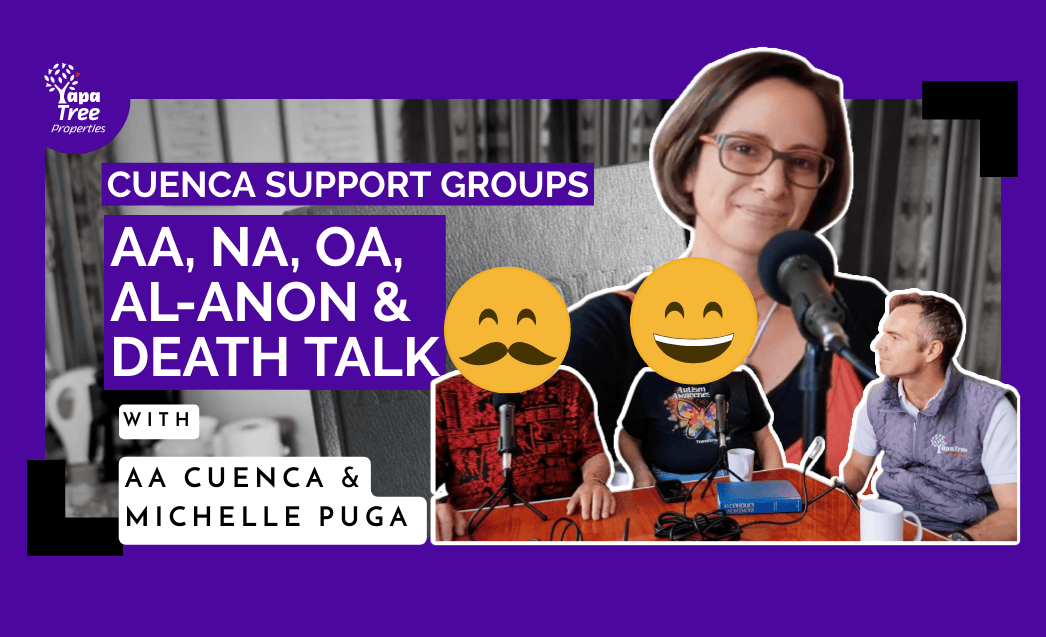




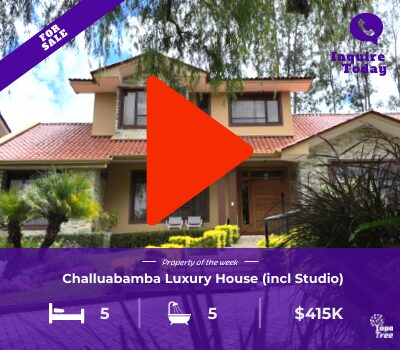
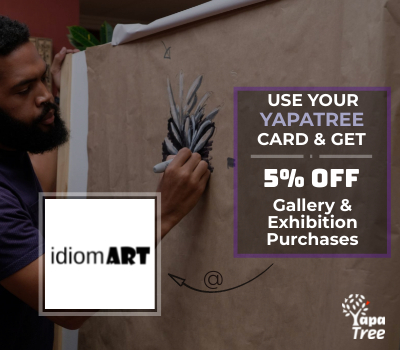
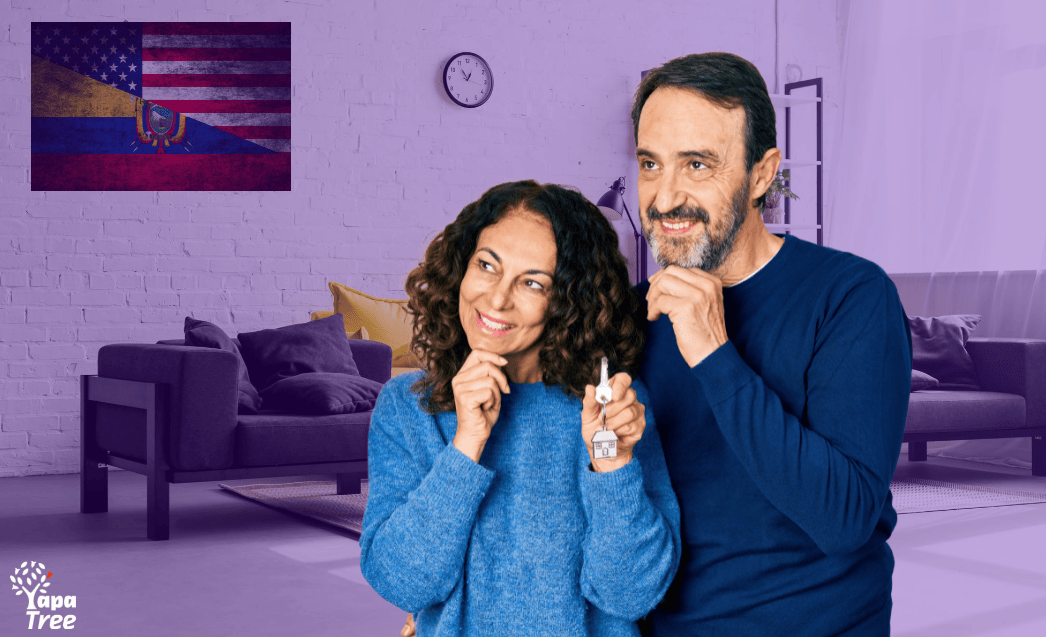
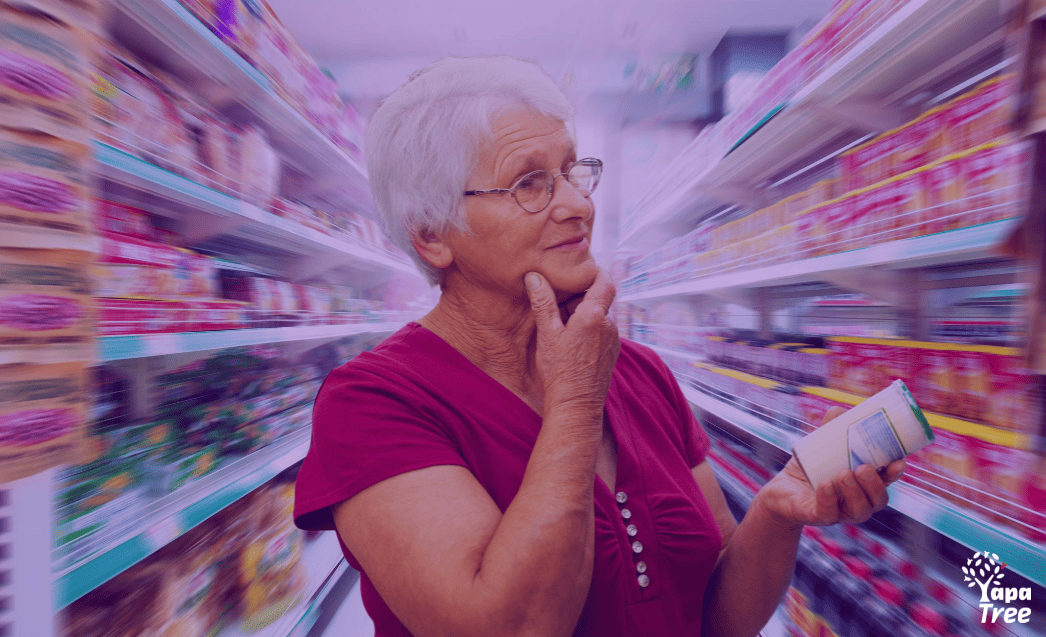
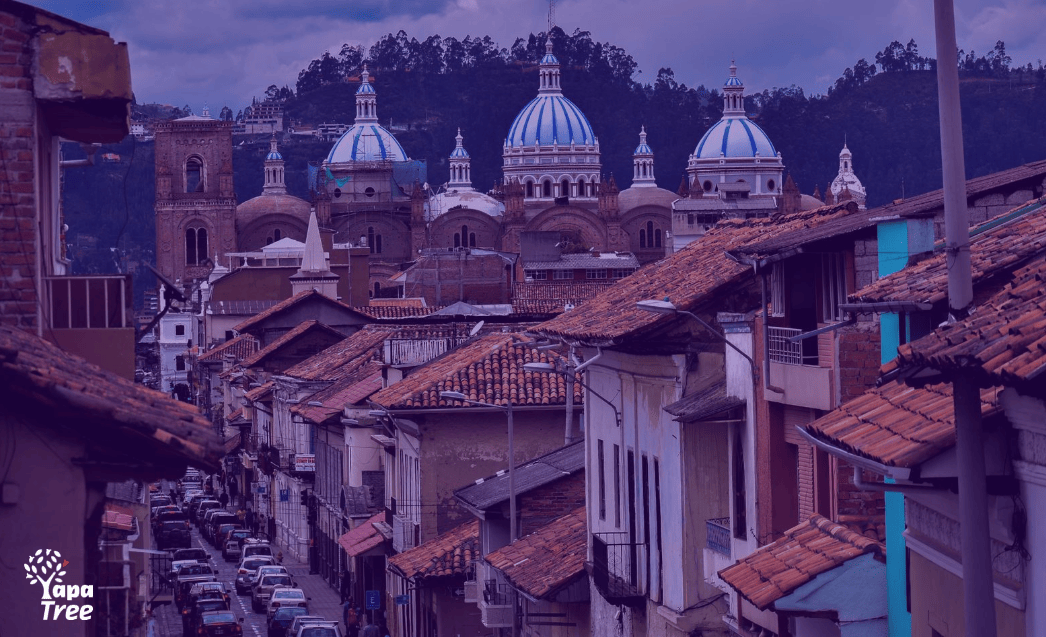
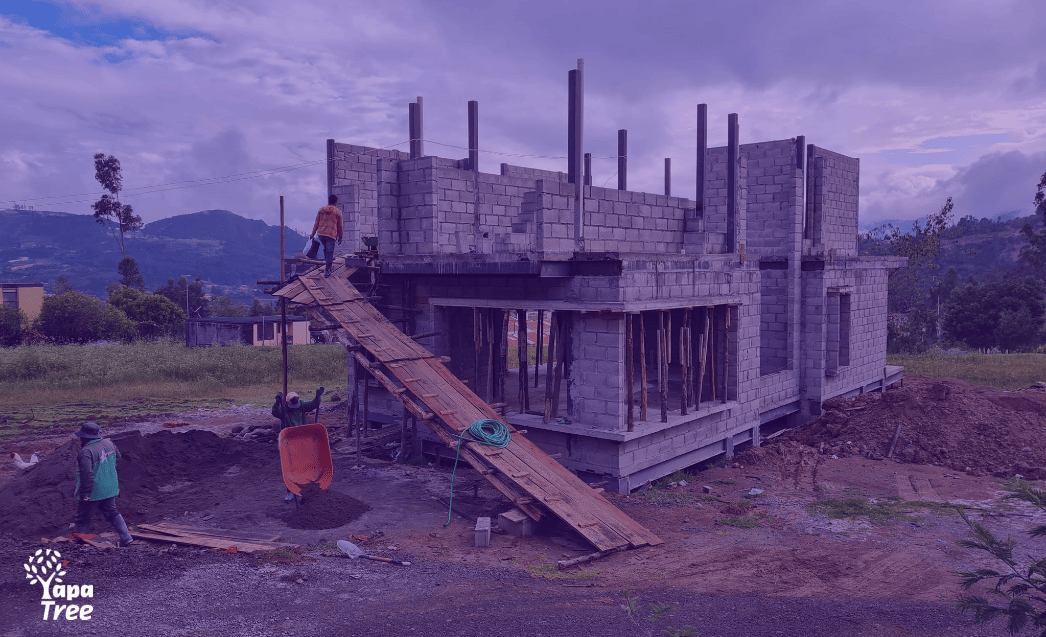
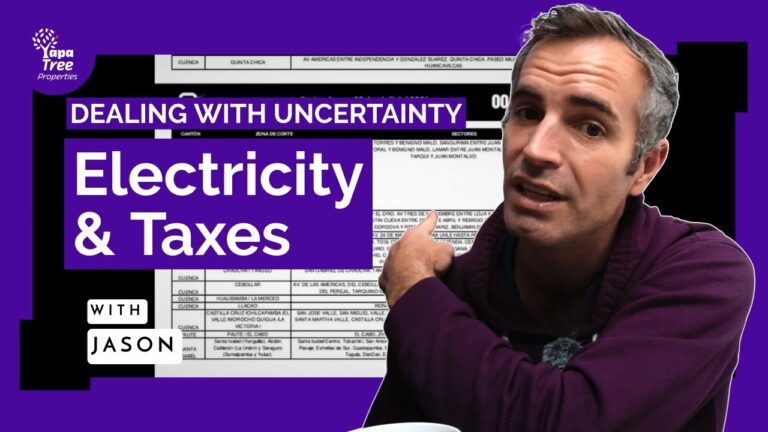
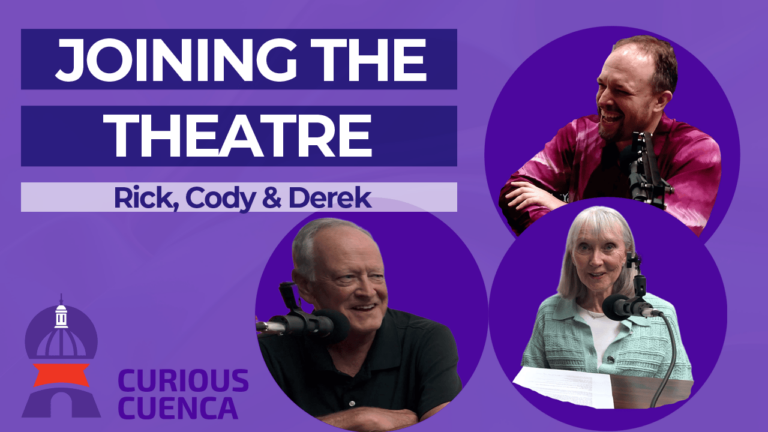
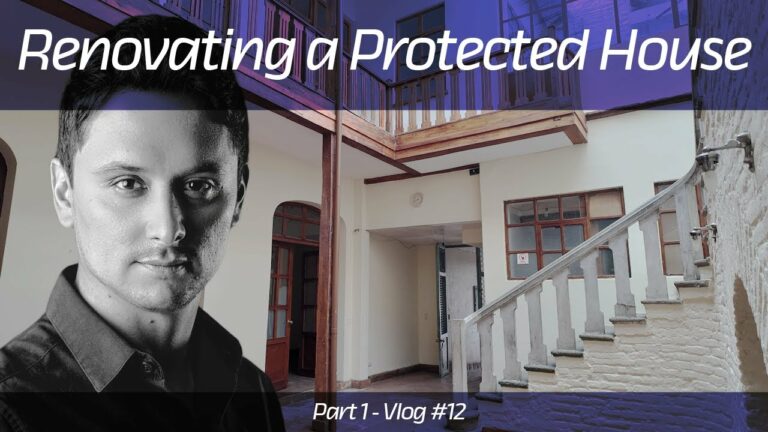
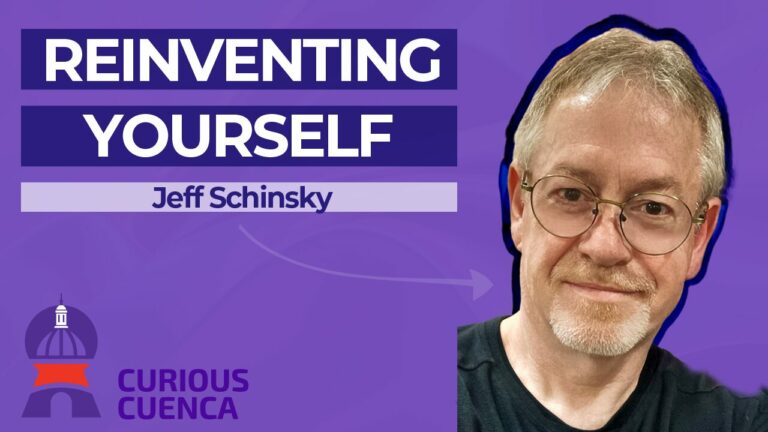
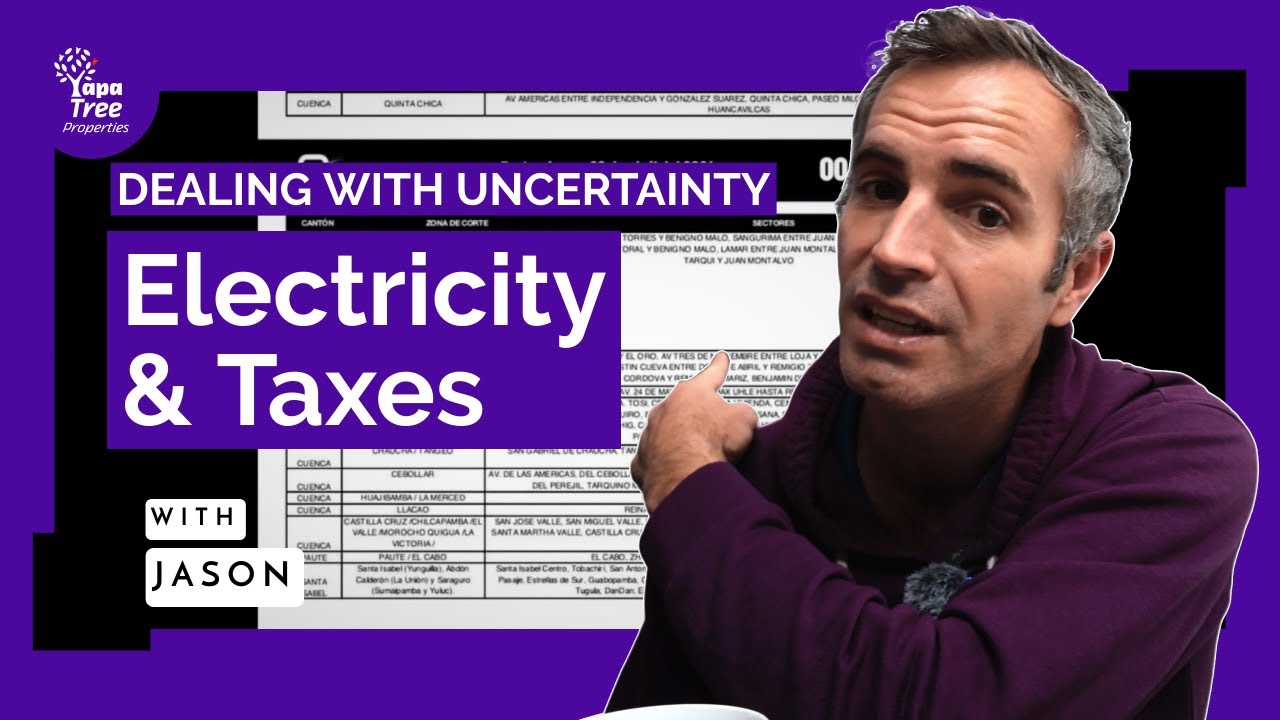
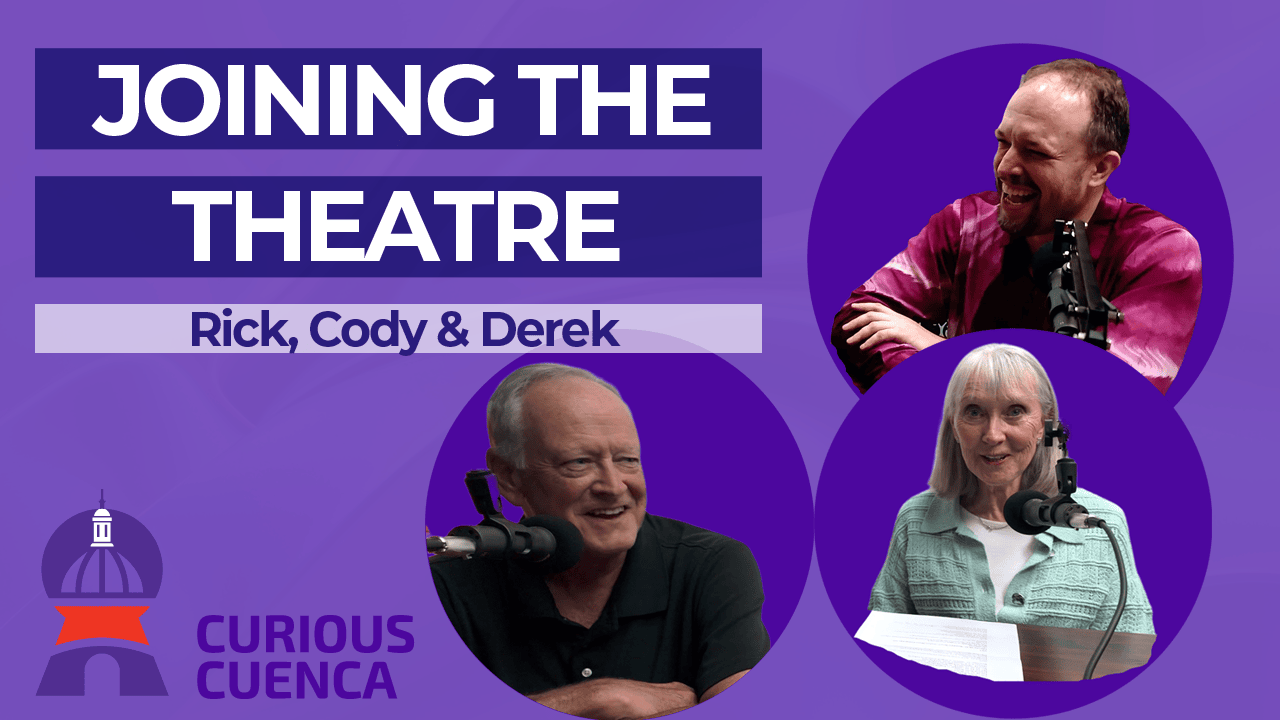
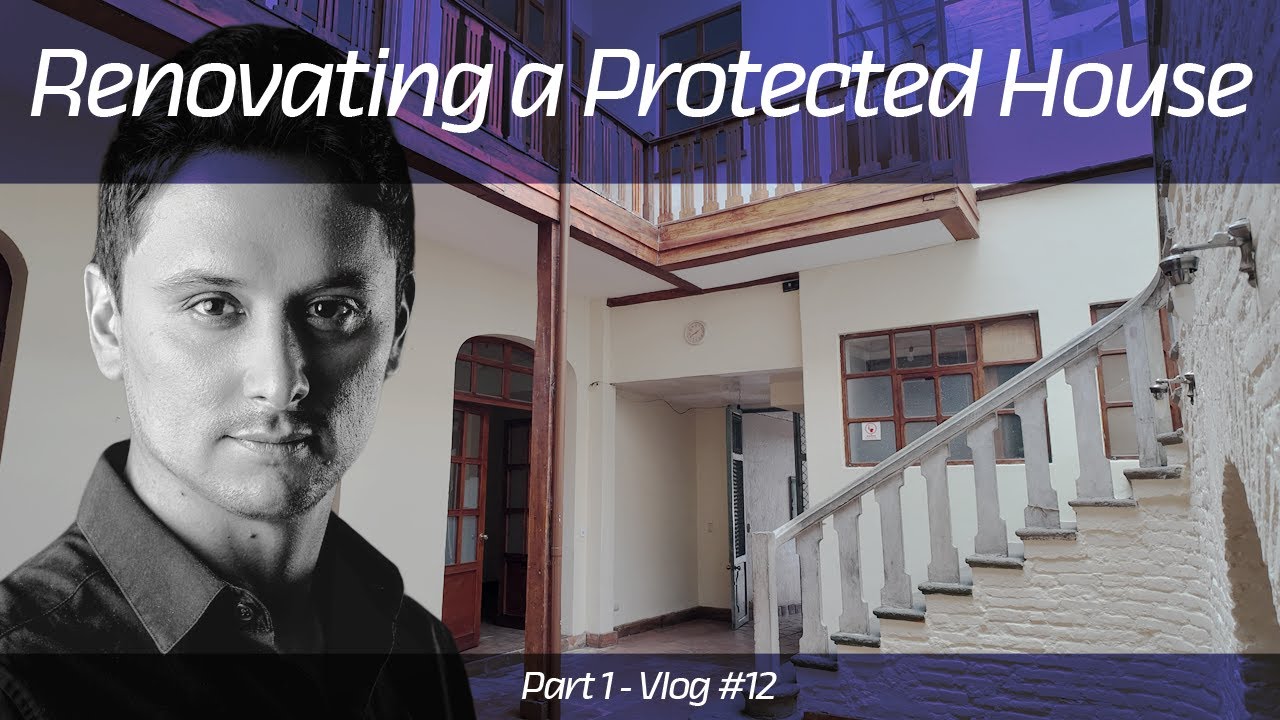
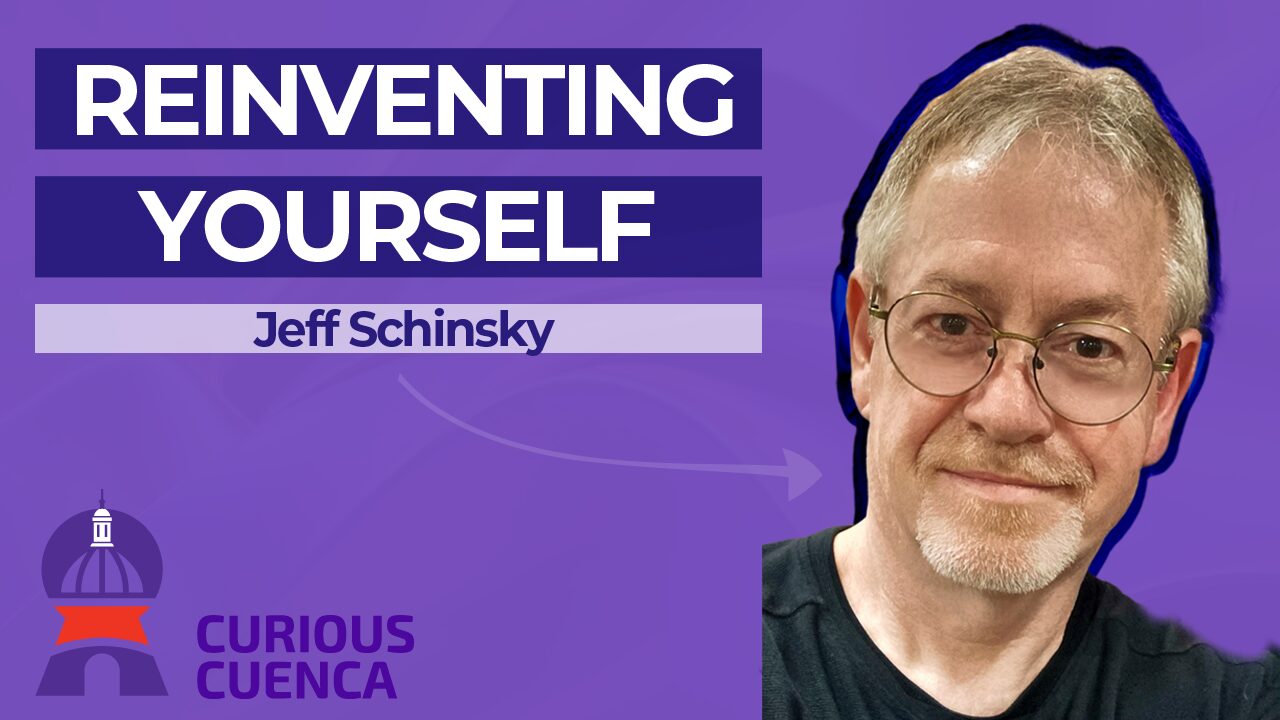
2 Responses
Thank you so much for this insightful and informative video. Twelve Step groups are an amazing gift. Thanks for spotlighting the local offerings and the Death talks caught my interest.
This was timely considering our conversation a few days ago, Jason. I’d like to learn more about the eco-friendly burial options in Ecuador. I helped support a conservation cemetery in Florida which provides a number of non-standard options and for a lot less than the funeral industry usually charges for their services. I’d like to know if there’s a funeral business in Cuenca that will work with people in that way and if there isn’t perhaps we can generate an alliance with one that is open to it. Thanks.